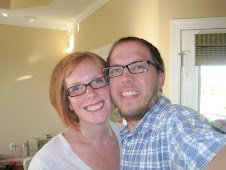In 1964, an elementary school teacher named John Holt wrote a book called "How Children Fail." In this book, the teacher blasted schools and the educational system. He felt, "what kills the (learning) processes are the people interfering with it or trying to regulate it or control it." He tried to inspire children to learn, not just memorize facts, and focused less on grades and rankings. As one can imagine, this didn't sit well with his employers and he was fired.
John Holt didn't invent homeschooling, but he started the first homeschool magazine which connected homeschool families and empowered more parents to take their kids educations into their own hands. He took the notion of homeschooling a step farther and coined the term unschooling in the 1970's. Unschooling is the belief that children learn through every day, natural experiences. It challenges kids to take learning into their own hands by exploring the world and how they fit into it. Unschoolers believe "that the more personal learning is, the more meaningful, well-understood and therefore useful it is to the child."
A friend of mine told me about unschooling many years ago. I think Ben was barely talking at the time. When I first heard about it, it sounded kind of crazy. I could wrap my head around homeschooling, but unschooling was too extreme for me. We're going on our 6th year of homeschooling and, I think I finally get it. The kids love being homeschooled. They have no desire to go to a public school. That doesn't mean they enjoy learning. The boys always got their work done, but even going at our own pace, they didn't retain much more than an average student and they rarely smiled during school. They got to sleep in, hang out in their pj's every day and do school on their own schedule. This would be most kids dream, but they weren't enjoying it. Learning should be fun. I want my kids to enjoy learning and be curious and go out and explore things that excite them. We're taking the next step in the homeschooling process and we've become unschoolers. All summer long I was thinking I'd unschool, but still throw in a few things here or there for them to actually do and learn. That plan lasted about a week. That is not unschooling. If we're going to do this, we're going to do it right. Right now we're in the process of deschooling. Deschooling is basically taking time off to discover what you (the kids) are actually interested in, explore it and not feel obligated to stick to a certain schedule, curriculum or learning model. We're slowly making our way to discovering what the kids actually like and want to do. An outsider looking in would describe deschooling as lazy and unproductive. We've definitely had a lot of that. However, we've also discovered Sam is interested in taking things apart and putting them back together. Ben has helped dad on a chair renovation project and has been the driving force in making a marshmallow shooter, a pocket sling and a bow and arrow. Had we stuck to our regular curriculum, I wouldn't have learned about these likes. Thats not bad for month 1.
So what does this mean on a day to day practical level? It means the kids can get up when ever they want to roll out of bed which is anywhere from 7:30-10am (unless we have plans). After breakfast, we might have something planned like a play date, a trip to the nature center, park time or bowling. If we choose to stay at home, the kids are free to watch tv, play Minecraft, Legos, dress up or any of the thousands of games they've made up for themselves. My job right now is to observe. I'm seeing what sparks their interest and acting on that. They've had restricted screen time for so long, they're soaking up as much as they can. I'm letting them have more screen time, but I'm (sometimes) directing it towards less mindless garbage. They made their pocket shooters because of a video we watched together. Ben was inspired to make his own birthday cookies because of a kid friendly cooking channel we checked out. He told me he wants to be a plumber, so we'll watch some Dirty Jobs and see what Mike Rowe can teach us. We took Sam to Goodwill and bought a toaster, clock and tv for him to take apart and examine. We've also taught Sam how to search for various things on the laptop. As we learn more about what they enjoy, we'll dive into those areas and stick with it until they want to move on. We have no curriculum, no worksheets, no scheduled school time, no subjects, no facts to master. What we do have are books, tools, toys, computers, tv, friends, libraries, imaginations etc etc etc. As they explore things they want to learn about, the excitement will grow, the retention will grow and the traditional school subjects will happen all on their own. As a 5th grader (for 1 month) Ben might not be able to tell you about an equilateral triangle, but he can tell you how to reupholster chairs, where to find any type of book in the library or about the lead in a car battery, and he'll do it all with a smile!
“The true test of character is not how much we know how to do, but how we behave when we don't know what to do.”
― John Holt
Not Sure If This Will Be My Last Post
3 months ago













2 comments:
This really sounds awesome! So cool - I think you're all in for some spectacular learning and surprises. Way to go!
I read up on John Holt....interesting. He studied at Yale...I wonder how he feels about higher education.
Post a Comment